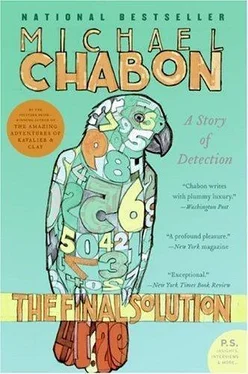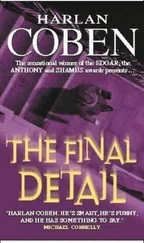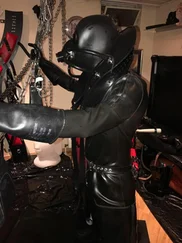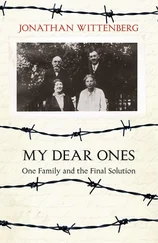
"Here," he said, holding out the tin. "It has been many years, but in my time sweets were widely acknowledged to be a kind of juvenile Esperanto." He grinned, doubtless a crooked and ogreish grin. "Come. Have a pastille? There. Good lad."
The boy nodded, and crossed the sandy dooryard to take the confectionery from the tin. He helped himself to three or four of the little pilules, then gave a solemn nod of thanks. A mute, then; something wrong with his vocal apparatus.
"Bitte," said the old man. For the first time in a very many years, he felt the old vexation, the mingled impatience and pleasure at the world's beautiful refusal to yield up its mysteries without a fight. "Now," he went on, licking his dry lips with patent ogreishness. "Tell me how you came to be so very far from home."
The pastilles rattled like beads against the boy's little teeth. The parrot worked its graphite blue beak fondly through his hair. The boy sighed, an apologetic shrug taking momentary hold of his shoulders. Then he turned and went back the way he had come.
"Neun neun drei acht zwei sechs sieben," said the parrot, as they walked off into the wavering green vastness of the afternoon.
2
There were so many queer aspects to Sunday dinner at the Panicker table that Mr. Shane, the new arrival, aroused the suspicions of his fellow lodger Mr. Parkins merely by seeming to take no notice of any of them. He strode into the dining room, a grand, rubicund fellow who set the floorboards to creaking mightily when he trod them and who looked as if he keenly felt the lack of a pony between his legs. He wore his penny-red hair cropped close to the scalp and there was something indefinitely colonial, a nasal echo of cantonment or goldfields, in his speech. He nodded in turn to Parkins, to the refugee child, and to Reggie Panicker, and then flung himself into his chair like a boy settling onto the back of a school chum for a ride across the lawn. Immediately he struck up a conversation with the elder Panicker on the subject of American roses, a subject about which, he freely admitted, he knew nothing.
A profound reservoir of poise, or a pathological deficit of curiosity, Parkins supposed, might explain the near-total lack of interest that Mr. Shane, who gave himself out to be a traveler in milking equipment for the firm of Chedbourne & Jones, Yorkshire, appeared to take in the nature of his interlocutor, Mr. Panicker, who was not only a Malayalee from Kerala, black as a bootheel, but also a high-church Anglican vicar. Politesse or stupidity, perhaps, might also prevent him from remarking on the sullen way in which Reggie Panicker, the vicar's grown son, was gouging a deep hole in the tatted tablecloth with the point of his fish knife, as well as on the presence at the table of a mute nine-year-old boy whose face was like a blank back page from the book of human sorrows. But it was the way in which Mr. Shane paid so little attention to the boy's parrot that made it impossible for Mr. Parkins to accept the new lodger at face value. No one could be immune to the interest that inhered in the parrot, even if, as now, the bird was merely reciting bits and scraps of poems of Goethe and Schiller known to every German schoolchild over the age of seven. Mr. Parkins, who had, for reasons of his own, long kept the African gray under careful observation, immediately saw in the new lodger a potential rival in his ongoing quest to solve the deepest and most vexing mystery of the remarkable African bird. Clearly, Someone Important had heard about the numbers, and had sent Mr. Shane to hear them for himself.
"Well, here we are." Into the dining room swung Mrs. Panicker, carrying a Spode tureen. She was a large, plain, flaxen-haired Oxfordshirewoman whose unimaginably wild inspiration of thirty years past, to marry her father's coal-eyed, serious young assistant minister from India, had borne fruit far mealier than the ripe rosy pawpaws that she had, breathing in the scent of Mr. K. T. Panicker's hair oil on a warm summer evening in 1913, permitted herself to anticipate. But she kept an excellent table, one that merited the custom of a far greater number of lodgers than the Panicker household currently enjoyed. The living was a minor one, the black vicar locally unpopular, the parishioners stingy as flints, and the Panicker family, in spite of Mrs. Panicker's thrift and stern providence, uncomfortably poor. It was only Mrs. Panicker's lavishly tended kitchen garden and culinary knack that could make possible a fine cold cucumber and chervil soup such as the one that she now proposed, lifting the lid of the tureen, to Mr. Shane, for whose sudden presence in the house, with two months paid in advance, she was clearly grateful.
"Now, I'm warning you well beforehand, this time, Master Steinman," she said as she ladled pale green cream, flecked with emerald, into the boy's bowl, "it's a cold soup and meant to be." She looked at Mr. Shane, frowning, though her eyes held a faint glint of amusement. "Sprayed the whole table with cream soup, last week, did the boy, Mr. Shane," she went on. "Ruined Reggie's best cravat."
"If only that were the most this boy had ruined," Reggie said, from behind his spoonful of cucumber soup. "If only we could leave it at a cravat."
Reggie Panicker was the despair of the Panickers and, like many sons who betray even the most modest aspirations of their parents, a scourge of the neighborhood as well. He was a gambler, a liar, a malcontent, and a sneak. Parkins- showing, it now seemed to him, a certain thickness of wit- had lost a pair of gold cufflinks, a box of pen nibs, twelve shillings, and his good luck charm, a blond five-franc chip from the Casino Royale in Monaco, before catching on to Reggie's thieving ways.
"And how old would young Mr. Steinman be, then?" Mr. Shane said, training the flashing heliograph of his smile on the faraway eyes of the little Jew. "Nine is it? Are you nine, boy?"
As usual, though, the lookouts in the head of Linus Steinman had been left unmanned. The smile went unacknowledged. The boy seemed, in fact, not to have heard the question, though Parkins had long since established that there was nothing wrong with his ears. The sudden clatter of a plate could make him jump. The tolling of the bell in the church tower could fill his great dark eyes with unaccountable tears.
"You won't get answers out of that one," Reggie said, tipping the last of his soup into his mouth. "Dumb as a mallet, is that one."
The boy looked down at his soup. He frowned. He was regarded by most of the residents of the vicarage, and in the neighborhood, as non-Anglophonic and quite possibly stupid. But Parkins had his doubts on both scores.
"Master Steinman came to us from Germany," Mr. Pan-icker said. He was a learned man whose Oxford accent was tinged with a disappointed subcontinental lilt. "He formed part of a small group of children, most of them Jewish, whose emigration to Britain was negotiated by Mr. Wilkes, the vicar of the English Church in Berlin."
Shane nodded, mouth open, eyes blinking slowly, like a golfing man pretending to enjoy for courtesy's sake an impromptu lecture on cell mitosis or irrational numbers. He might never have heard of Germany or Jews or, for that matter, of vicars or children. The air of deep boredom that settled over his features looked entirely natural to them. And yet Mr. Parkins mistrusted it. The parrot, whose name was Bruno, was now reciting from Der Erlkönig, softly, even one might have said politely, in its high, halting voice. The bird's delivery, though toneless and a bit rushed, had a childish poignancy not inappropriate to the subject of the poem. And yet still the new lodger had taken no notice of the parrot.
Читать дальше
Конец ознакомительного отрывка
Купить книгу













